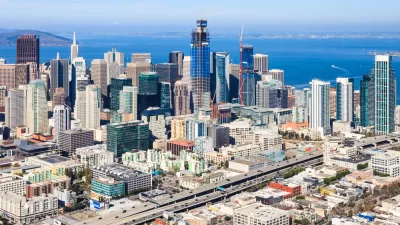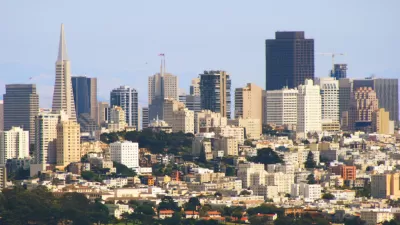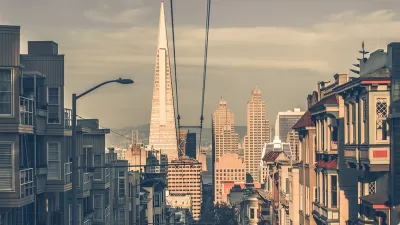After a Forbes article revealed dozens of makeshift sleeping areas in Twitter’s downtown San Francisco offices, the city is asking the company to file for permits if they want to keep them.

“Earlier this week San Francisco building inspectors told Twitter’s construction company that it had two weeks to submit a building permit that allows for the existing conference room sleepers,” writes Audrey Wachs in The Architect’s Newspaper. Whether people should be encouraged to sleep at work is another question.
The makeshift bedrooms first appeared on social media in December, when employees posted photos of them. After Forbes published an article validating what at first seemed like a bad joke, city inspectors descended on the company. “In order to get the newly-required permits, Twitter’s contractor has to send over revised floor plans that depict the new bedrooms.”
According to Wachs, “The December pictures revealed a sleeping quarter with a queen bed, a nightstand, and two armchairs atop bright orange carpets.” According to one employee, the sleeping quarters are “[not a good look. It’s yet another unspoken sign of disrespect. There is no discussion. Just like, beds showed up.”
FULL STORY: San Francisco says Twitter needs permits for its office bedrooms

Study: Maui’s Plan to Convert Vacation Rentals to Long-Term Housing Could Cause Nearly $1 Billion Economic Loss
The plan would reduce visitor accommodation by 25,% resulting in 1,900 jobs lost.

North Texas Transit Leaders Tout Benefits of TOD for Growing Region
At a summit focused on transit-oriented development, policymakers discussed how North Texas’ expanded light rail system can serve as a tool for economic growth.

Using Old Oil and Gas Wells for Green Energy Storage
Penn State researchers have found that repurposing abandoned oil and gas wells for geothermal-assisted compressed-air energy storage can boost efficiency, reduce environmental risks, and support clean energy and job transitions.

Private Donations Propel Early Restoration of Palisades Playground
Los Angeles has secured over $1.3 million in private funding to restore the Pacific Palisades playground months ahead of schedule, creating a modern, accessible space that supports community healing after recent wildfires.

From Blight to Benefit: Early Results From California’s Equitable Cleanup Program
The Equitable Community Revitalization Grant (ECRG) program is reshaping brownfield redevelopment by prioritizing projects in low-income and environmental justice communities, emphasizing equity, transparency, and community benefits.

Planting Relief: Tackling Las Vegas Heat One Tree at a Time
Nevada Plants, a Las Vegas-based nonprofit, is combating the city’s extreme urban heat by giving away trees to residents in underserved neighborhoods, promoting shade, sustainability, and community health.
Urban Design for Planners 1: Software Tools
This six-course series explores essential urban design concepts using open source software and equips planners with the tools they need to participate fully in the urban design process.
Planning for Universal Design
Learn the tools for implementing Universal Design in planning regulations.
Ascent Environmental
Borough of Carlisle
Institute for Housing and Urban Development Studies (IHS)
City of Grandview
Harvard GSD Executive Education
Toledo-Lucas County Plan Commissions
Salt Lake City
NYU Wagner Graduate School of Public Service





























